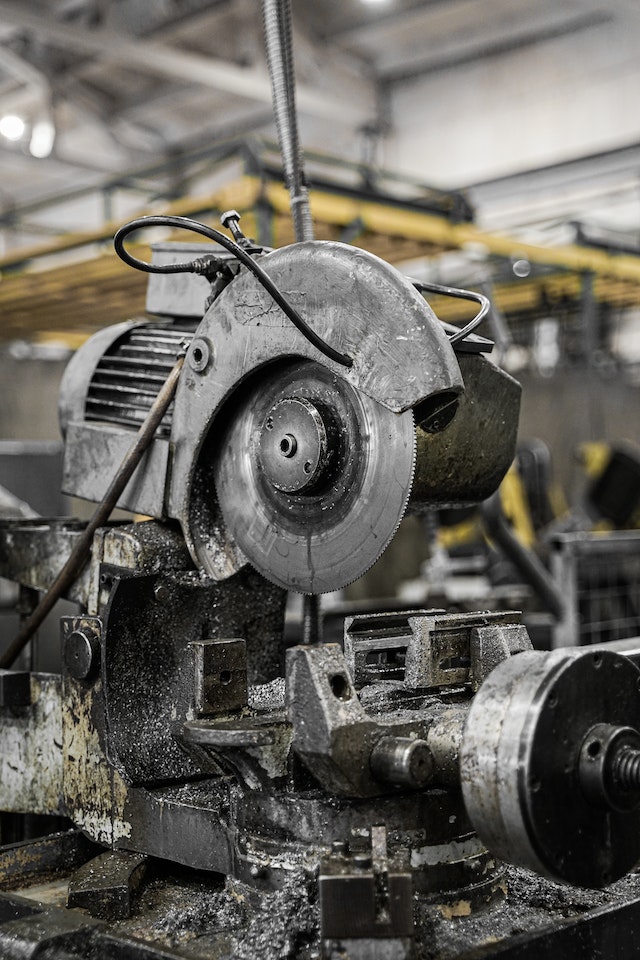
Picture from Pexels
As technology advances toward a greater emphasis on speed and mobility, the need for reliable, portable power sources is growing exponentially. Without doubt, lithium-ion batteries are the talk of the town when it comes to delivering that. These batteries are now the standard power source for industrial equipment.
Using cutting-edge energy storage technology, such as lithium-ion batteries, can set your business apart from the rest of the pack. They have many benefits that can be broken down into five key groups: energy density, natural discharge, longevity, maintenance, and charging speed. But first, let’s start by looking at what lithium-ion batteries are and how they work.
Lithium-Ion Batteries: What They Are and How They Work
Lithium-ion batteries are a sophisticated battery technology that relies on lithium ions for their electrochemistry. The components of these batteries include an anode and a cathode as well as a separator, electrolyte, and two current collectors (negative and positive).
The anode and cathode store lithium and the electrolyte enhances flow of lithium ions from the anode to the cathode and back through the separator. As a result, an electrical charge is generated at the positive current collector because of the free electrons created in the anode. From there, the electric current travels through the industrial machinery being powered and into the negative current collector.
Benefits of Lithium-Ion Batteries for Industrial Equipment
Compared to other types of batteries like lead-acid batteries, lithium-ion batteries have many practical and safety benefits in machinery. Some of the major benefits include:
1. High Energy Density
The primary benefit of lithium-ion batteries over secondary batteries like lead-acid batteries, nickel-metal hydride batteries, and nickel-cadmium batteries, is that these batteries have high energy density, besides being small in size and light weight.
When compared side by side, the maximum voltages produced by lead-acid, nickel-metal hydride, and nickel-cadmium batteries of equivalent size are 2.1V, 1.2V, and 1.25V, respectively.
On the other hand, lithium-ion batteries can generate voltages as high as 3.7V. This makes these batteries efficient in powering even huge industrial machinery.
2. Resistant to Natural Discharge (Self-Discharge)
Lithium-ion batteries do not self discharge. Self-discharge refers to the natural discharge that occurs in batteries even when they are not being used. To give one concrete example, self-discharge causes the ‘dead battery’ phenomenon that prevents ignition of a car that has not been driven for over a long period of time.
Batteries will self-discharge if the chemical reaction inside them continues to advance at a slow rate even when they are not actively in use.
However, lithium-ion batteries hardly ever need to be recharged because they use a slightly different reaction from the battery reaction that occurs in other secondary batteries. For this reason, these batteries are very efficient for use in your industrial machinery.
3. Long-lasting
The lithium-ion batteries can be charged and discharged numerous times without losing their capacity. This is because, unlike other secondary batteries, they do not rely on chemical reactions to generate power.
Therefore, their electrodes degrade far less quickly than those of competing secondary batteries. Hence, these batteries can withstand frequent charging and discharging without suffering any significant performance deterioration. This in turn means no downtime for your machinery.
4. Low Maintenance Costs
feature sealed cells, meaning it does not require regular washing or refilling with water to function.
It’s possible that you won’t need to take batteries out of your equipment or switch them out during the day. This is because, unlike with lead-acid batteries, the battery can stay fitted in the machine for a longer period of time, saving money on both storage and maintenance.
5. Fast-charging
Lithium-ion batteries charge very fast. You can recharge them at convenient times – opportunity charging – during the shift. This will improve your machines’ efficiency by minimizing the need for frequent battery swaps, which in turn reduces downtime.
Additionally, a lithium-ion battery for industrial equipment will offer you more productivity. This is because their charge typically last twice as long as lead acid batteries.
Bottom Line
Efficiency and productivity are paramount in industrial equipment. Whether you have one or many machines, if you want to succeed and give yourself an edge in your industry, your machinery needs to have a reliable, efficient, long-lasting, and low cost energy source. With that said, you’ll need the impressive tech of lithium-ion batteries to help you stand out from the crowd.

